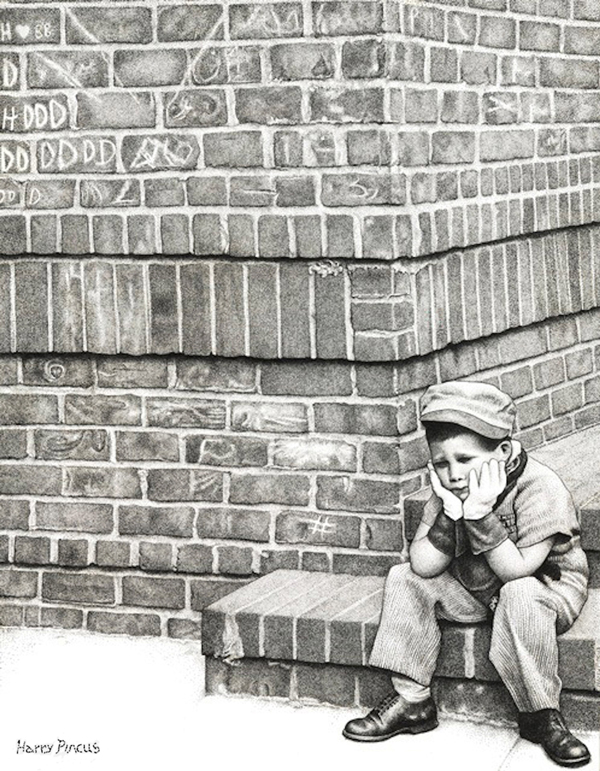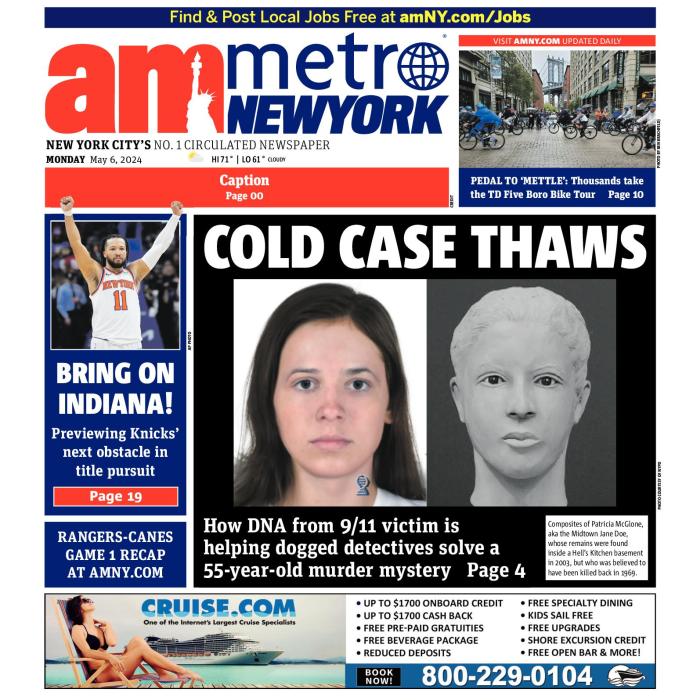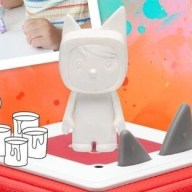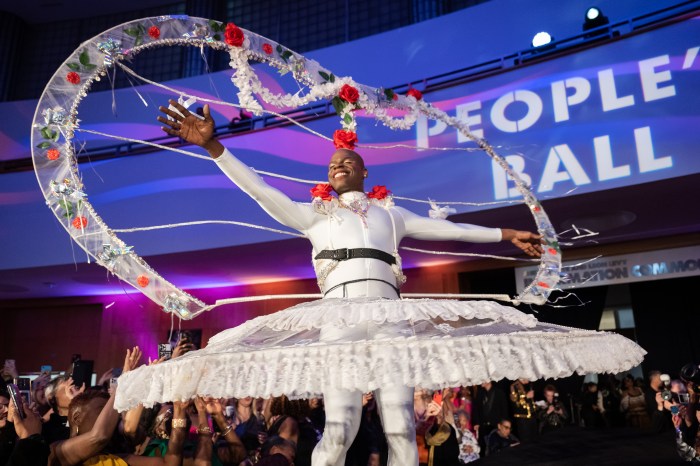
BY HARRY PINCUS | Viewers of the Mets’ delicious triumph over the Dodgers last week were treated to the apparition of an old man with suspenders, wearing a “Brooklyn” cap, seated behind home plate. It was clearly Larry King, the retired eminence of CNN. Don Newcombe, the great old Dodger pitcher, was also there, but 87-year old announcer Vin Scully was temporarily missing in action for a medical “procedure.” The cameras also sent a flash of the great Sandy Koufax, seated in a box. These men had all journeyed from Ebbets Field in old Flatbush to the sunny palms of Chavez Ravine.
Before Brooklyn was cool, it was great. I was a very minor player amidst this greatness, just an awkward Jewish kid with orthopedic shoes, a Sluggo haircut and two parents who couldn’t behave in public. They’d only had one fight. It had begun long before I was born, and lasted into eternity. As Jackie Mason used to say…“If he said one more woid… .” Nobody knew what that word was.
I also had the kind of plastic eyeglasses currently favored by hipsters, but they burdened me, and I refused to wear them. This was no help for my remarkably poor athletic abilities. My father, Irving, a free-thinking subway conductor and avid handball player, loved the Dodgers with all his heart…and suggested that the only position I was capable of playing in the Little League was “left out.”
Sandy Koufax was my prince and my inspiration. As a kindergartener at P.S. 221, I had seen the lights of Ebbets Field aglow down the Empire Boulevard, just before they faded forever. Koufax too had played at the Parade Grounds and kept the faith on Yom Kippur. Now he was the Greatest Pitcher on the Planet! If Sandy Koufax could do it, couldn’t I rise up in the world and at least do something?
During the ’63 World Series, when I was 11, I read in the New York Post that the Dodgers were staying at the Roosevelt Hotel in Midtown. Someone had smuggled a little transistor radio into our sixth-grade class, in hopes that our inspired teacher, Mr. Salz, would allow us a bit of leeway. Sure enough, Koufax broke all records that day, striking out 15 Yankees in the World Series! I must have floated home, and later that afternoon, actually summoned the audacity to call the desk at the Roosevelt Hotel to ask to speak to my hero.
“I’m his cousin, from Brooklyn,” I lied.
Within seconds, a deep and refined voice answered.
“Mr. Koufax,” I squealed, “I’m Harry Pincus from Brooklyn, and I play with the Lincoln Pennies at the Parade Grounds, and you are my greatest hero!”
“Well, thank you, Harry,” said my hero. “I used to play at the Parade Grounds, too.”
The most sensational pitcher of all time had just struck out 15 Yanks in the Series, and he sounded as if he had all the time in the world for me.
Before I could even believe it, the spell was broken.
My mother, Blanche, sometimes described as the Jewish Mother from Central Casting, had picked up the extension.
“Mr. Koufax,” said Blanche, “I’m Harry’s mother, and you’re doing a real mitzvah talking to my son.”
A mitzvah is a blessing, but I knew and dreaded where this was going.
“Mr. Koufax, Harry is a disturbed child because his father, Irving, has quit the job as my husband, to run off with kauvres and bummakes!” (Yiddish for whores and bad ladies).
OH NO! THERE SHE GOES AGAIN! NOT TO SANDY KOUFAX!
“Well, Mrs. Pincus, Harry sounds like a very fine young man to me,” said Sandy “and I hope he’ll call me again when we’re in New York.”
But, après Blanche, I never did.
Years later, on the old “Tonight Show,” Johnny Carson asked Buddy Hackett if Brooklyn had really been as great as they say.
“Of course it was,” said the great comedian. “I probably shouldn’t tell you this, but I actually babysat Sandy Koufax! Yeah, we lived in the same building, and his name then was Braun. His parents were divorced, and his mother hadn’t yet met that nice Irving Koufax.”
It occurred to me then that my call from Brooklyn must have seemed ironic for Koufax, as he sat on top of the world after striking out all of those Yanks in the Series.
Many years later, after our neighborhood had been attacked on my son’s second day of preschool, I was hustling my family angrily down Sixth Avenue following a rather desultory parent-teacher conference at P.S. 41. My usually lovable son, Isaac, by then in second grade, had encountered a teacher who didn’t quite appreciate his sense of humor.
I don’t usually notice men’s legs, but there were two locomotive jackhammers walking toward me, attached to a powerful older man with gleaming white hair. The man was attached to a younger blonde. KOUFAX!!! My wife thought I was suddenly yelling at someone, or having a fight. In fact, I had instantly reverted to my 11-year-old self, and ran after my hero, yelling, “Mr. Koufax, Mr. Koufax… I called you after you struck out 15 Yanks in the World Series and you were so kind to me!”
The impressive gent with the young blonde in tow didn’t so much as break stride.
“I don’t know who you’re talking about,” he said.
“But you had just struck out 15 Yanks in the Series, and I called you in your hotel room… .”
“I don’t know who you’re talking about,” he repeated, somewhat slyly. He just looked straight ahead and kept on with enormous strides.
It was surreal, as if I had just met George Washington and he had denied being George Washington.
I realized that Koufax wasn’t going to stop, or even look at me. He certainly wasn’t going to admit to his real identity as Superman. In a modern world of stalkers, lawyers, geeks, creeps, sports agents, media hounds, paparazzi and professional “fans,” there were no telephone booths to be found. My great Jewish Hero was going to remain Clark Kent.
I wanted to salvage the debacle by complimenting him…wink wink, nudge nudge, in front of his girlfriend.
“You’re still my hero, and you’ll always be my hero,” I said as he stopped for the light. He looked at me out of the corner of his eye, as a slight grin crossed his lips. Sandy Koufax then strode purposefully across Waverly Place.
It seemed like an unacceptable conclusion. A bad Hollywood ending. Had the world changed so much?
This year, the High Holy days of the Jewish religion arrived with sad news. My friend’s brother, the founder of an avant-garde record label, had passed away, and I was on my way to attend his memorial on 14th Street. I trudged up Sixth Avenue, dreading everything, especially my friend’s grief.
In the bright sunlight, a halo of white hair caught my eye. It was Koufax. I quietly walked over, and wished him a Happy New Year. We shook hands as if we were old friends, and walked off into the setting sun.
Pincus is an award-winning illustrator and fine artist. He lives in Soho.

















